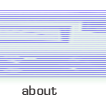 |
||||||
 |
 |
 |
 |
 |
 |
 |
CMJ’s
Certain Damage Control For
campus/community stations across North America, the College Music
Journal (CMJ) is not just a magazine or trade publication. By reporting
weekly playlists to CMJ a service for which stations pay US$450
a year they not only get factored into the CMJ Top 200, but individual
playlists are printed in the back of the magazine. Being included
in CMJ is a sign of validation for a station, no matter how small,
and a virtual guarantee that the station will be serviced by all major
labels and indies large and small. But
a recent scandal over the way CMJ compiles those charts has had several
stations questioning the magazine’s integrity. The
problem began when CMJ switched to an online reporting system, into
which music directors were supposed to enter their weekly charts.
Previously, MDs could submit their charts via phone, fax or email.
While kinks were being worked out with the database software, it meant
that anytime CMJ didn’t recognize an entry, it would disregard the
entire list and that station’s information wouldn’t appear in the
magazine at all. To
rectify this, CMJ decided to insert a “placeholder” to substitute
for the releases that they couldn’t verify. Unfortunately, they used
a compilation entitled Certain Damage, which is a monthly CD mailed
to every station by CMJ, on which CMJ charges $3000 to appear. The
appearance of conflict of interest was unavoidable, intensified by
grumblings from campus radio that CMJ’s editorial focus had recently
shifted to the music industry including adding retail charts, and
featuring promo reps on its cover. In
a letter to campus radio, CMJ CEO Robert Haber admitted the folly
of using Certain Damage as a placeholder. “The
decision to replace unverified albums with Certain Damage was a foolish
one,” he wrote. “Of course, in retrospect, we should've picked a more
benign placeholder. At the time it was our genuine belief that this
was a temporary fix in advance of curing a larger internal technical
issue.” Still, that doesn’t wash with a lot of clients. It doesn’t help that the compilations in question aren’t taken seriously by music directors. “I give Certain Damage away to people,” says Christien Gagnier, the former music director and now the station manager at CJAM in Windsor. “There are too many compilations in this world as it is. It has to be a really great compilation of material that isn’t otherwise released or that we don’t have at the station, if it’s going to go into circulation anyways. Certain Damage would never chart at CJAM otherwise.” Gagnier says that when CJAM signed up for CMJ in 1994 the impact on incoming product was huge. But with the ability to send out playlists via mass email, the climate has changed. CKMS in Waterloo pulled out of CMJ ten years ago, and music co-ordinator Eva Rucki says only one label stopped servicing them. Rucki says CKMS’s decision was financial, national, and service-based. “I was uncomfortable with the cost for Canadian stations as opposed to American stations, especially back then considering that Canadian bands didn’t have much impact on the magazine,” she says. “On top of the huge expense, if it had been worth it, that would have been one thing. But we found that there were many occasions where our playlists were sent and not printed. I would call and say, ‘Did you not get it? Should I send it earlier?’ And they’d say, ‘Ah, I don’t know. Bye.’ No reason given. I thought, if I’m paying for a service I’m not getting, I should just cancel.” “For a lot of labels, particularly in the States, they won’t service you
because they want to see their releases on those charts and you’re
not helping them do that,” says Magnus Thyvold, who is on the NCRA
Board of Directors and is the Station Manager at CJSF in Vancouver.
“A lot of people would like to drop it, even before this, and this
has fuelled that desire to get out of it. On the other hand, it’s
something of a giant in the area. They’re really the only game in
town. With the ability to email your charts out to everybody at minimal
cost and effort provides some option to getting out of CMJ. You can
communicate with 1000 or more labels on a weekly basis just by having
a long distribution list. A lot of people don’t like CMJ but see it
as a necessary evil.” |
|
|
|
© copyright 1998-2001
!earshot/NCRA. |
